You can encounter extraordinary flora and fauna without having to leave town!
In my home city even an easy stroll along a cement footpath is highly likely to yield something special.
This post’s photos were taken this month, all from – or within a single footstep of – a footpath which many Perth residents walk every day.
Much of the Swan River’s estuarine foreshore is within a very short walk of public transport, after which you can enjoy very easy walks on well made paths.
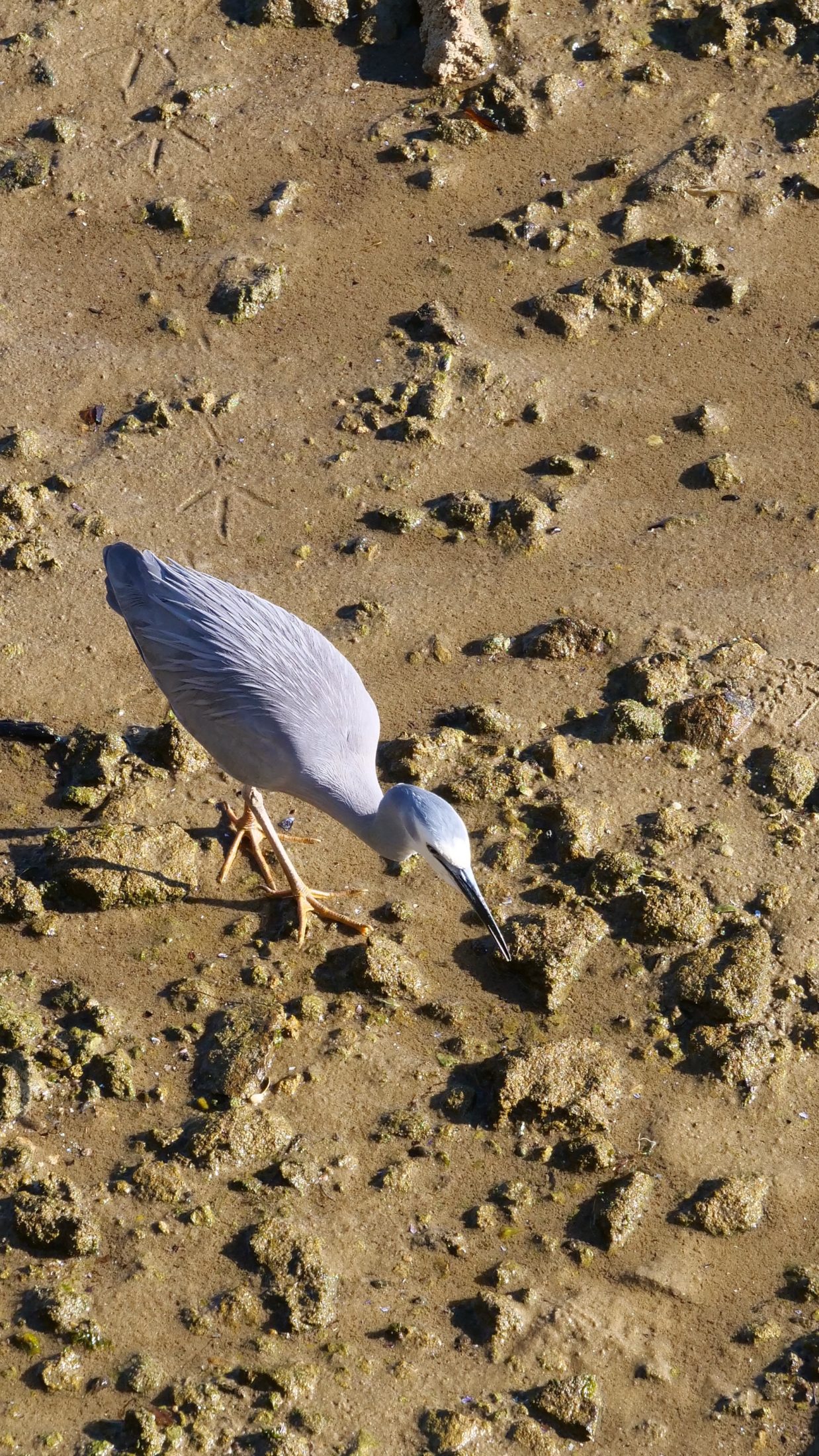
We often see white-faced herons; this one was not the least fussed by humans on the slightly elevated path around Point Dundas, Applecross, on the south side of the river.
On the north side, beside Perth’s CBD, is Kings Park.
Like the Swan River, Kings Park is an always-rewarding but always-troubling destination.
As Botanical Garden and as public park, Kings Park has few peers, worldwide.
Feral plants’ invasion of Kings Park’s remarkably large “natural bushland” section has proceeded, largely unchecked, over the 36 years that we have lived in Perth.
The freesias’ march is especially evident/relentless.
Kings Park’s bush is still a treasure, but a much-degraded, still-degrading one.
As a (relatively) unpolluted, glorious expanse of water in the midst of a metropolis, the Swan is beyond most cities’ fondest attainable dreams.
However, the Swan’s health is declining.
In the 1980s when I looked out from “my” CBD office window I often saw a nearby professional fisherman in Perth Water’s then-sustainable fishery.
This millennium, he and that fishery are memories, only.
The “repair” of Kings Park’s bush and of the Swan’s waters and shores are both eminently doable tasks.
They are, however, utterly undoable with current, inadequate levels of effort/expenditure.
Alas, “our” various levels of government are still unwilling to afford the health of Perth’s “iconic” park and its “iconic” river the high priority that was so readily given to building the city’s excellent new stadium and to carving out its mediocre new Quay.
Kings Park’s Botanic Garden section is an altogether happier story; here, what was already marvellous when we arrived in 1983 still becomes even more so, each year.
Particularly arresting at the moment are the young, recently emerged “spikes” of Banksia blechnifolia.
They are in the Banksia Garden, within the Botanic Garden.
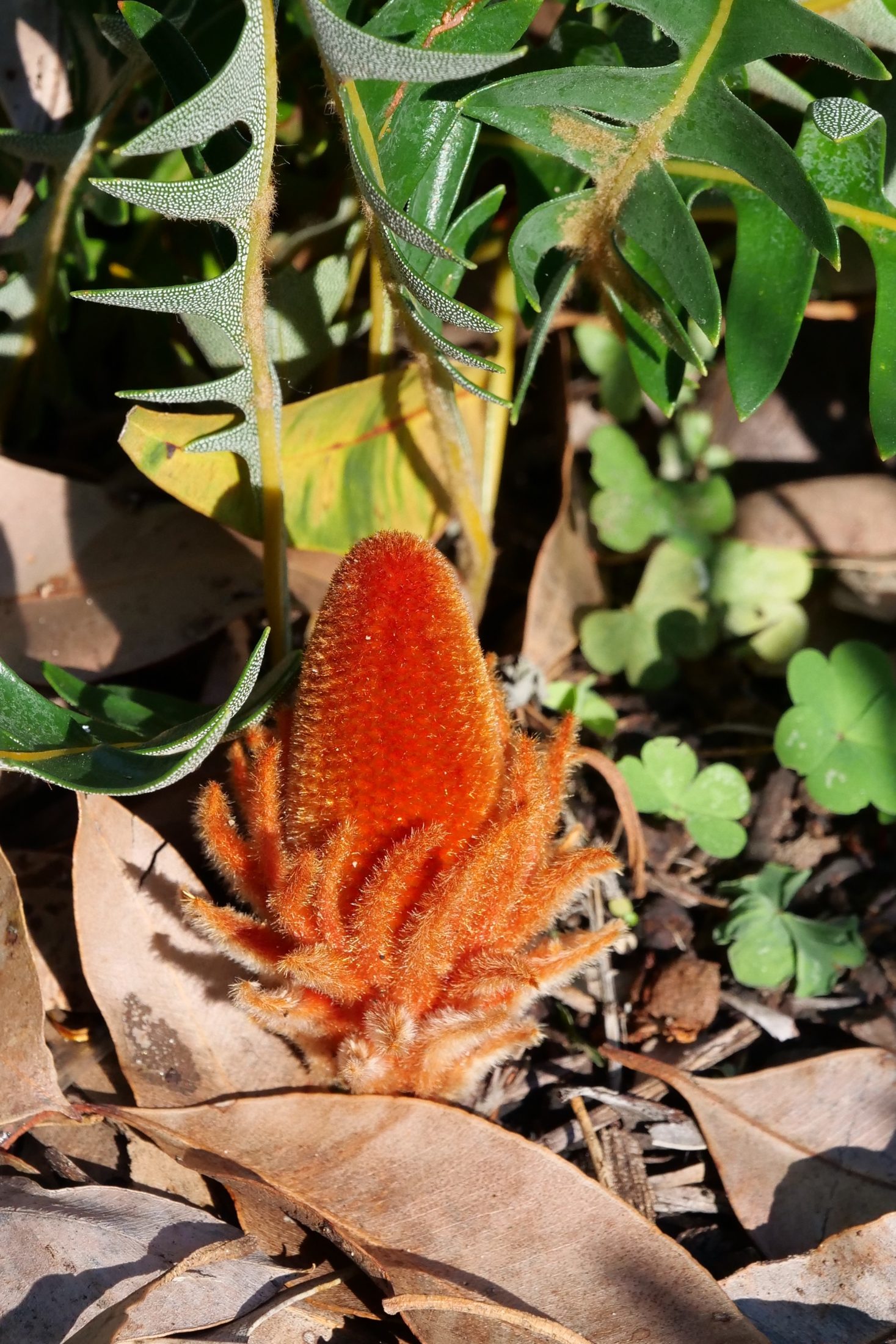
When I photographed them the “spikes” pictured above and below were just a little larger than my thumbs.
Click here to discover more about this species, which is one of southwest WA’s several “prostrate” Banksias.
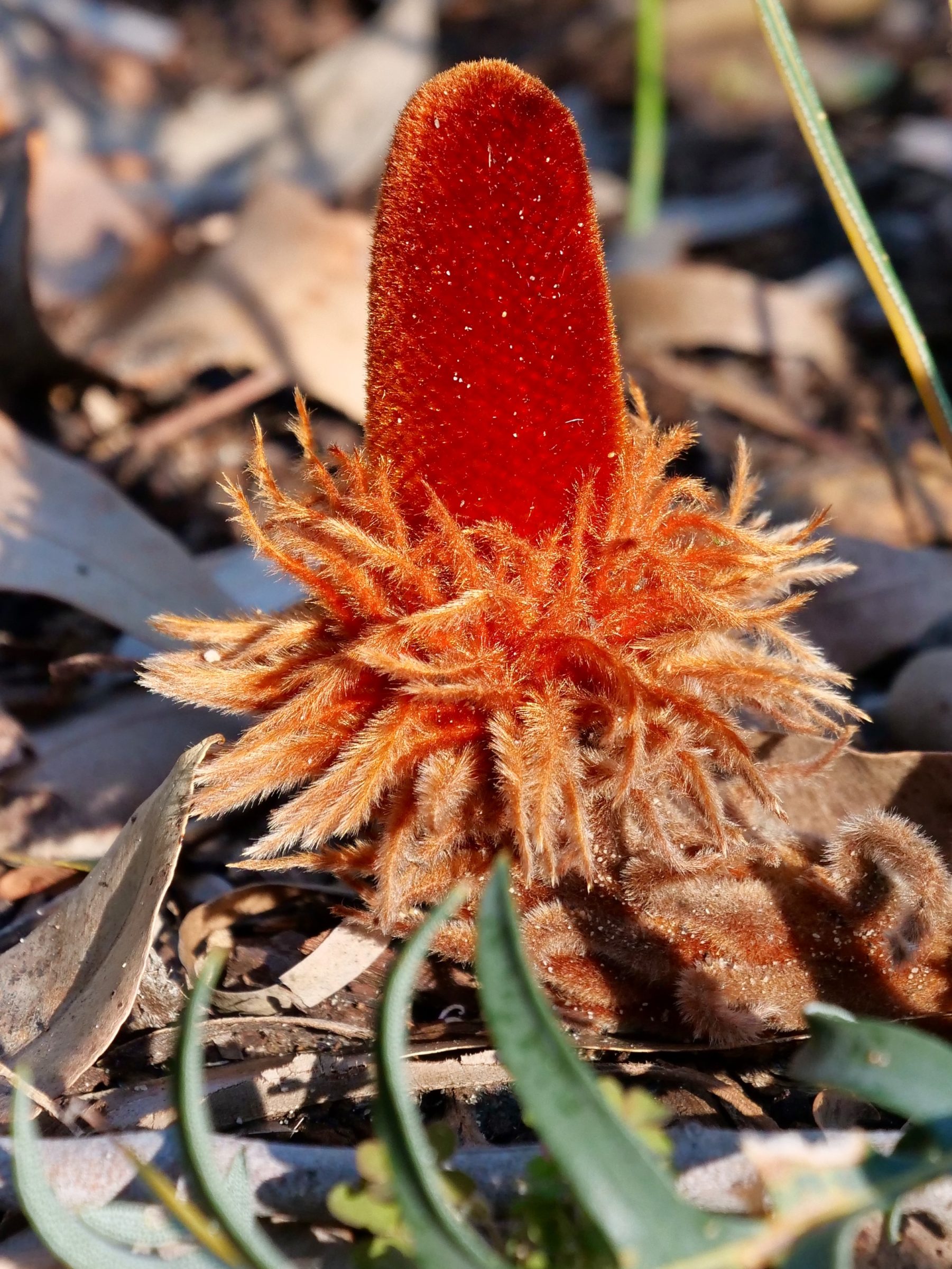
All but one of the 170 Banksia species are found only in Australia.
90% of those species grow naturally only in southwestern WA. Many – B blechnifolia included – grow naturally only within a very particular part of southwestern WA.
Unlike many other WA plants, however, B. Blechnifolia is relatively easy to grow in other places, so you may well have seen it in a garden near wherever you live.
As is true of most Banksias, their “spikes” radically change their size and appearance as they develop, then decay.
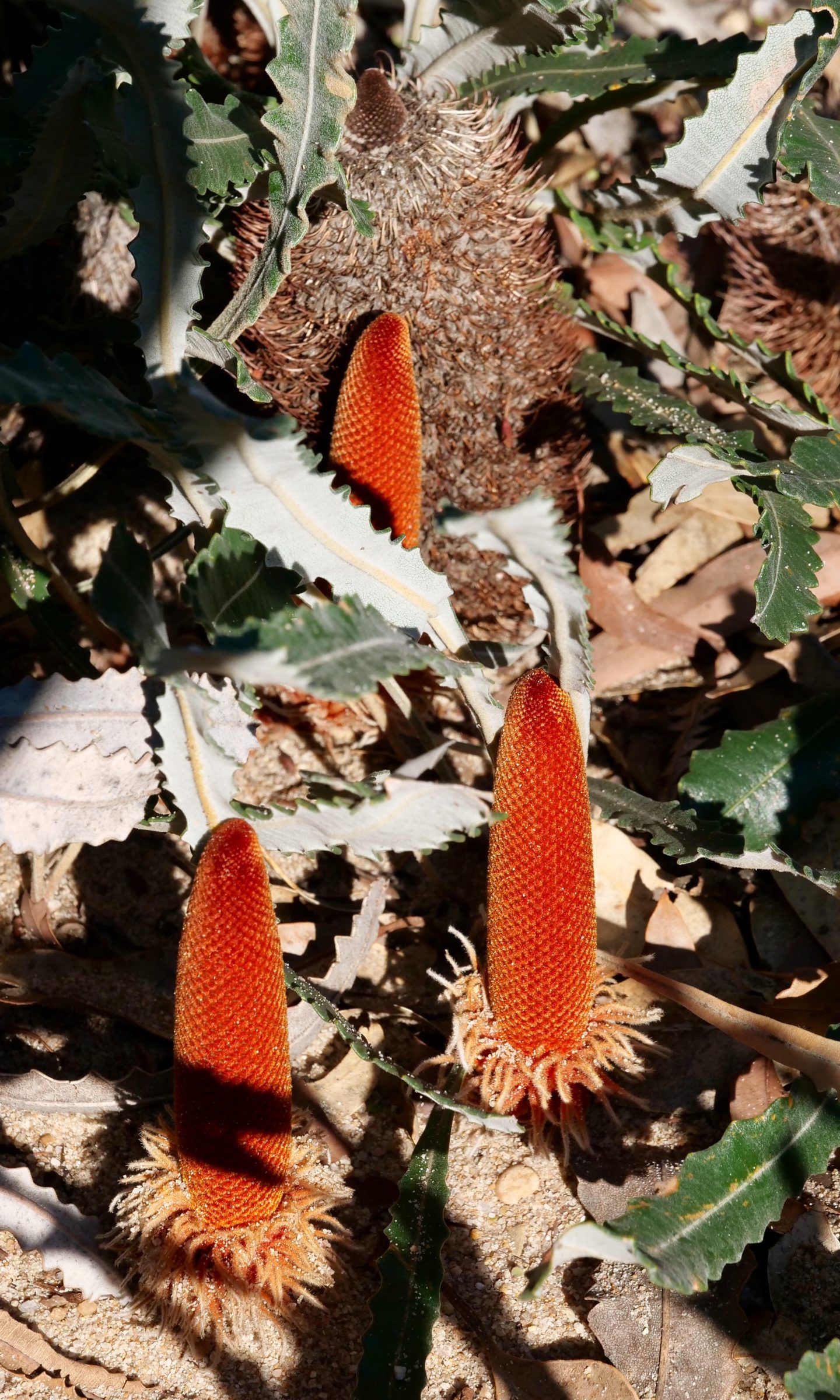
Meanwhile, right now, even the street verges of inner suburbia repay close attention.
The Bottlebrushes pictured below are probably (underline “probably” – I am not a botanist) native to eastern Australia, but they are thriving here.
Incidentally, it reached 30 degrees today, August 28, 2019. That is the highest winter maximum temperature ever recorded in Perth.
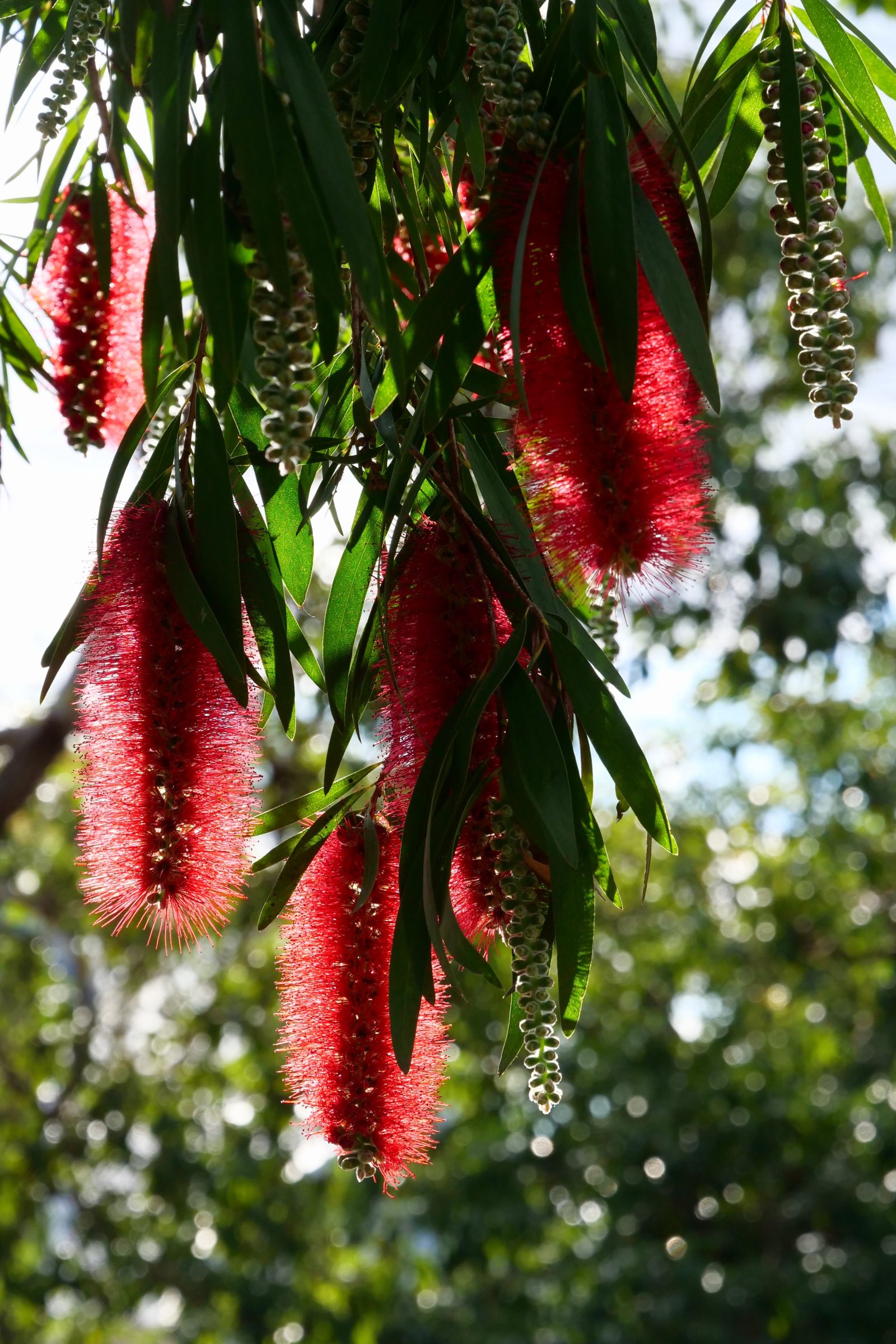
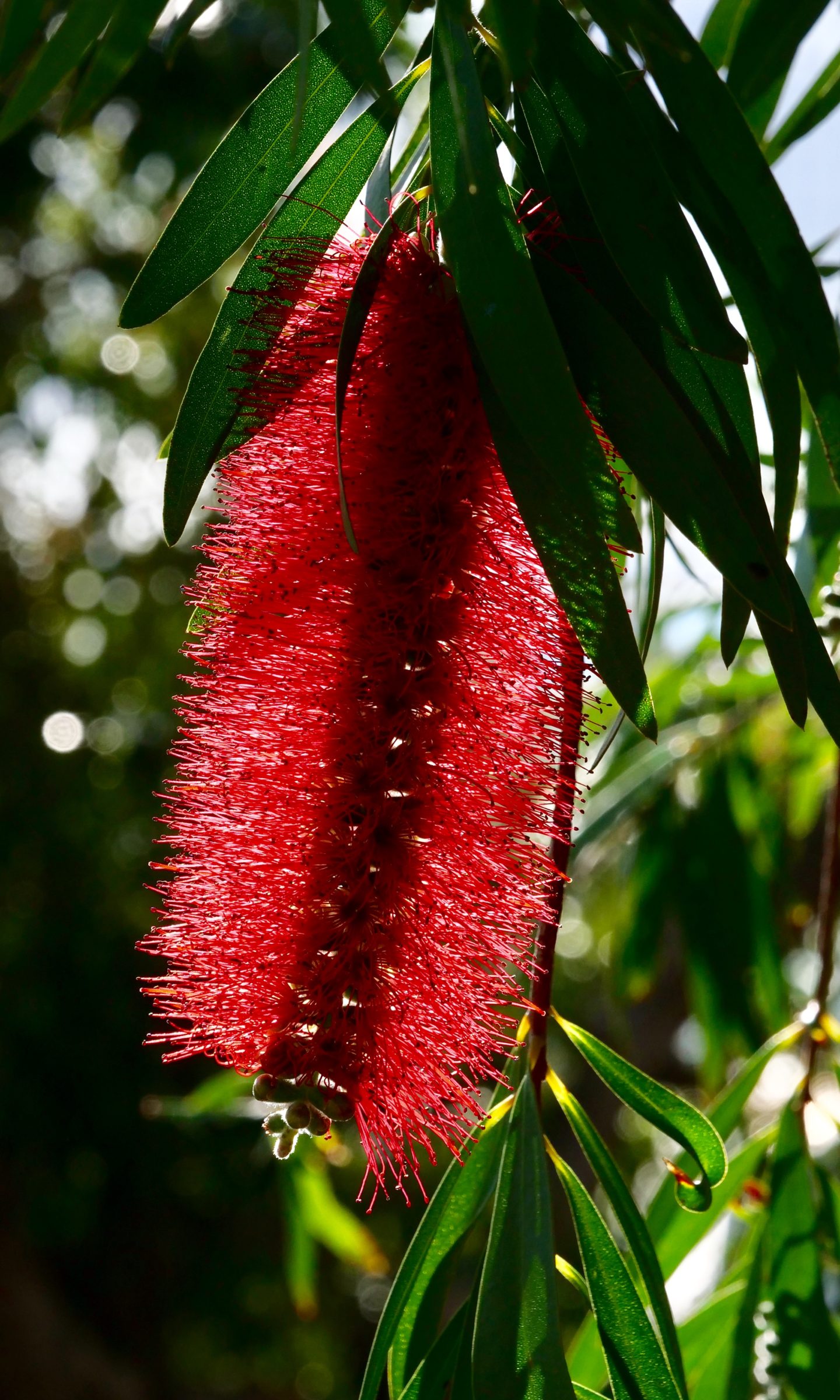
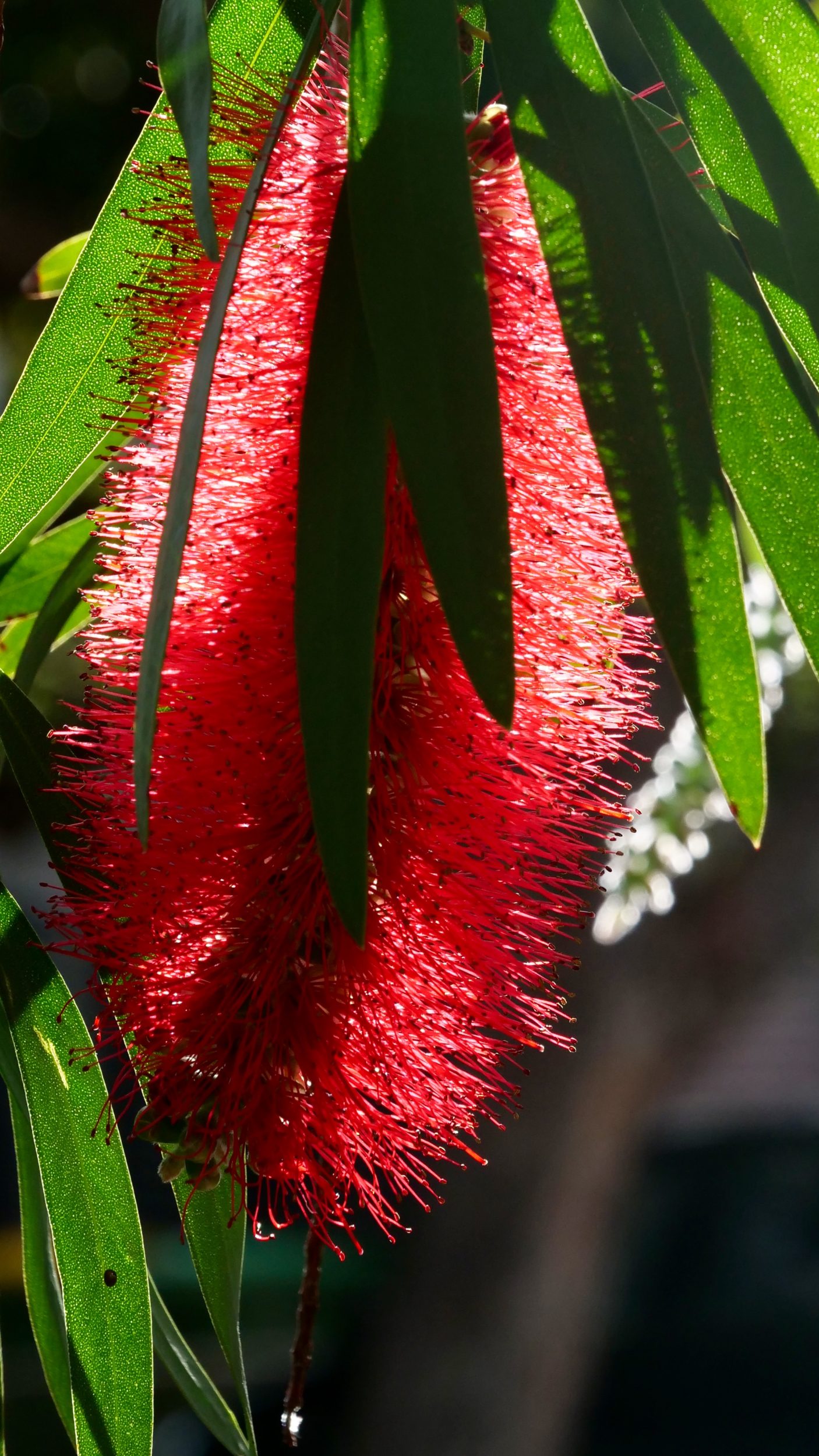
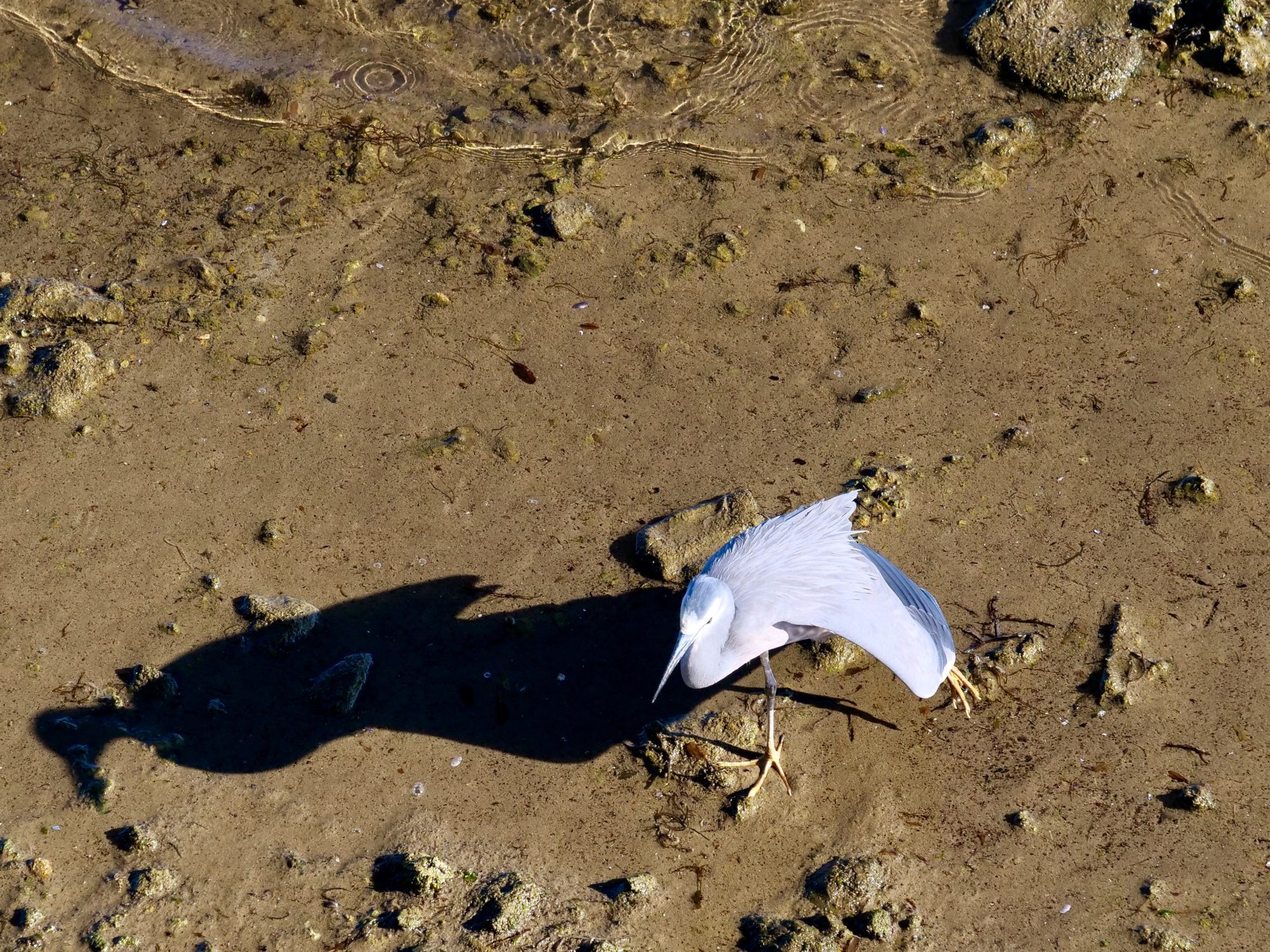
cool pics Doug..!!…Urrbrae house/Waite campus in ADL also for [v slow growing] b blechnifolia, acacia glaucoptera & more..& i love your black cockatoo pics..!!